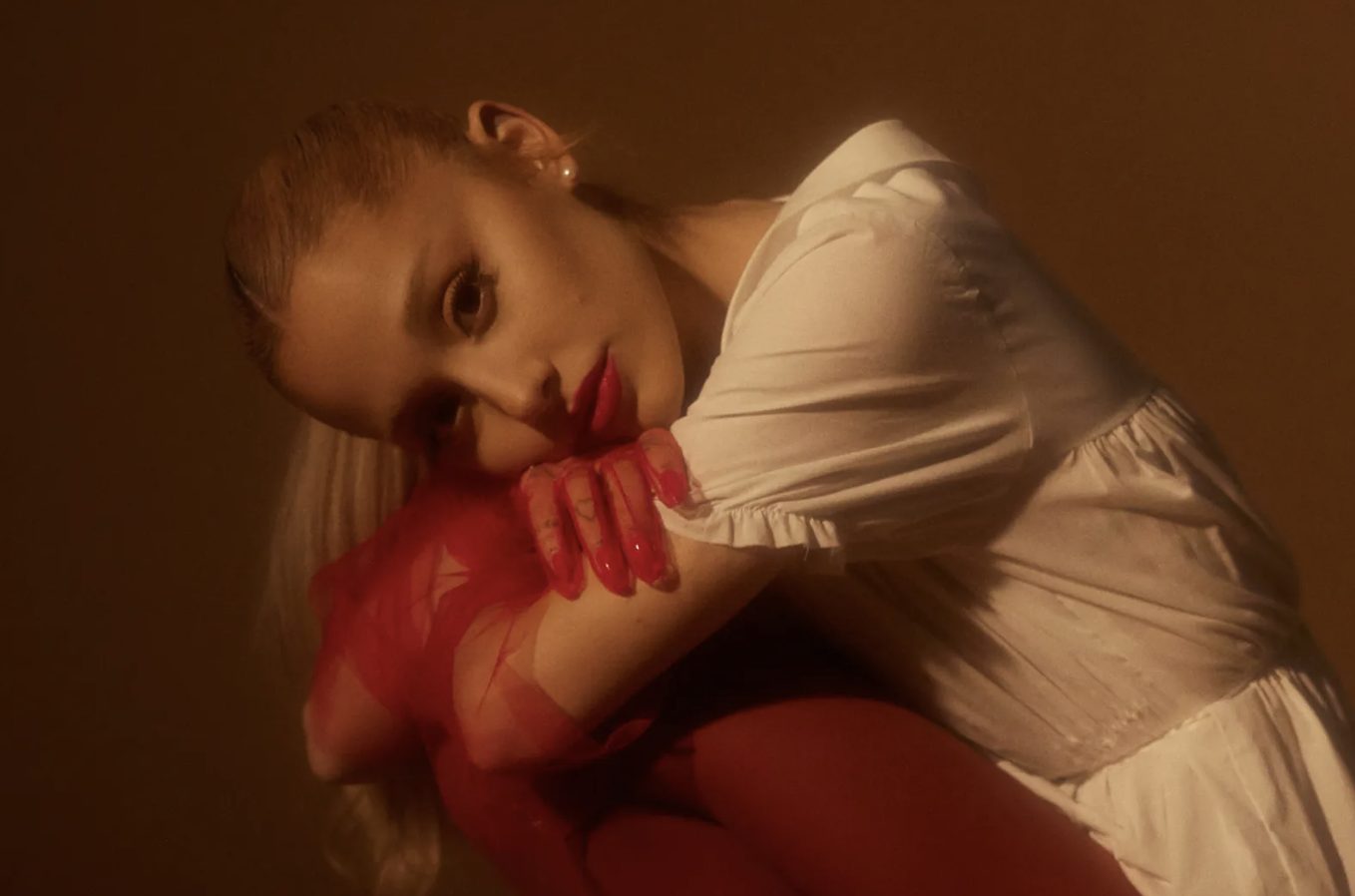Despite her insistence in “the boy is mine” that she’s “usually so unproblematic,” Ariana Grande is hardly new to controversy. From a donut-licking scandal almost a decade ago to more recent “blackfishing” accusations, this singer has always danced a little too close to the sun.
But she never danced closer than in 2023, when rumors were that Grande was seen acting lovey-dovey with “Wicked” co-star Ethan Slater. Slater and Grande were both married at the time of these rumors, and Slater’s wife had recently had a child. Obviously, a double affair was bad press for both parties, so the press constructed relationship timelines to try and cover their tracks, placing Slater and Grande’s relationship after Grande’s split from her husband. The timeline constructions are, frankly, convoluted and many fans didn’t buy the story.
Then, Grande released new music. In this music, Grande uses two strategies to deflect criticism: spiritual-themed “love and light” positivity and a relational bait-and-switch.
In January, Grande dropped a single called “yes, and?”—a brazen title for someone accused of homewrecking. This single features the things Grande is known for: high-energy production and lyrics like, “And if you find yourself in a dark situation/just turn on your light and be like/yes, and?” and, “Now I’m so done with caring/what you think, no, I won’t hide/underneath your own projections/or change my most authentic life.”
On the surface, these lyrics are blanket positivity, a thing Grande writes about often, but in the context of her cheating scandal, they feel like a woman plugging her ears to the genuine harm caused by her actions.
This single in isolation could be about the awful backlash women in the music industry face for simply existing. The lyric, “don’t comment on my body, do not reply,” for example, addresses a real grievance Grande has experienced in recent years. The lyric that follows it, questioning why the listener cares who the speaker sleeps with, could be read as a call against the invasion of privacy or shaming women for their sexual choices. In context, though, it frames fans who are disappointed in Grande’s double infidelity as unreasonably caught-up in her personal business. This is not a particularly good start for Grande’s new album, but the second technique—the relational bait-and-switch—aims to fix that trajectory.
Grande’s “eternal sunshine” came after a four-year hiatus from producing music, due to the artist’s involvement in “Wicked.” The first song, “intro (end of the world),” opens with the words, “how can I tell if I’m in the right relationship?” We are asked, overtop dreamy instrumentals, to contemplate Grande’s conflict over feeling butterflies interacting with a new person, as she asks the question, “If it all ended tomorrow would I be the one on your mind…would you be the one on mine?”
This is where the bait-and-switch occurs. Before this album, little had been said about Grande’s relationship with now-ex-husband Dalton Gomez, but this album frames Gomez in a complicated but ultimately unflattering light. “don’t wanna break up again” opens with “I fall asleep crying/you turn up the TV/you don’t wanna hear me/one more sleepless night” and also contains the lyric, “I made it so easy/spent so much on therapy/blamed my own codependency/but you didn’t even try.”
These lyrics shift the narrative from Grande’s infidelity, to her husband’s infidelity and emotional neglect. This narrative still acknowledges the cheating, and even emphasizes the conflicted feelings about doing so, but it tries to absolve Grande of fault.
Yet, while Grande released a full album detailing her side of the story, Dalton Gomez has not released a statement. This may be due to Gomez’s profession—he’s a real estate agent, not a public figure. Some rumors have floated around that Dalton Gomez was made to sign an NDA, meaning that the only side of the story we may ever see is Grande’s.
Despite this, I can’t say I don’t enjoy the album. It is effective at creating a sympathetic spin on her story, and the portrayal of her previous marriage isn’t as one sided as certain lyrics make it out to be. It’s clear there’s still some kindness left, in lyrics like, “I hope you still think fondly of our little life,” and even the song “i wish i hated you” is about those complex feelings of affection despite hardship. The music video for “we can’t be friends,” like the whole album, references “Eternal Sunshine of the Spotless Mind,” which handles similar themes.
If we can put aside our assumptions about Grande’s situation and view “eternal sunshine” as an album about the fears associated with both change and stagnation, it’s honestly good. The authentic emotions of the album are resonant, especially in the more tender moments.
Grande’s catchy composition keeps the album lively; as much as I can side-eye her titling a track “the boy is mine” about a boy who probably wasn’t, I can enjoy it for its early 2000s groove. The album’s final track, “ordinary things,” ends with a feature from Grande’s grandmother, who describes her marriage to Grande’s grandfather and gives the advice, “Never go to bed without kissing goodnight…And if you can’t…you’re in the wrong place, get out.”
Say what you will about the cheating scandal (I certainly will), but the decision to center the album on the difficulty of change, especially in emotionally fraught relationships, and end it with a decisive move toward a new beginning was a PR decision that worked on me.

